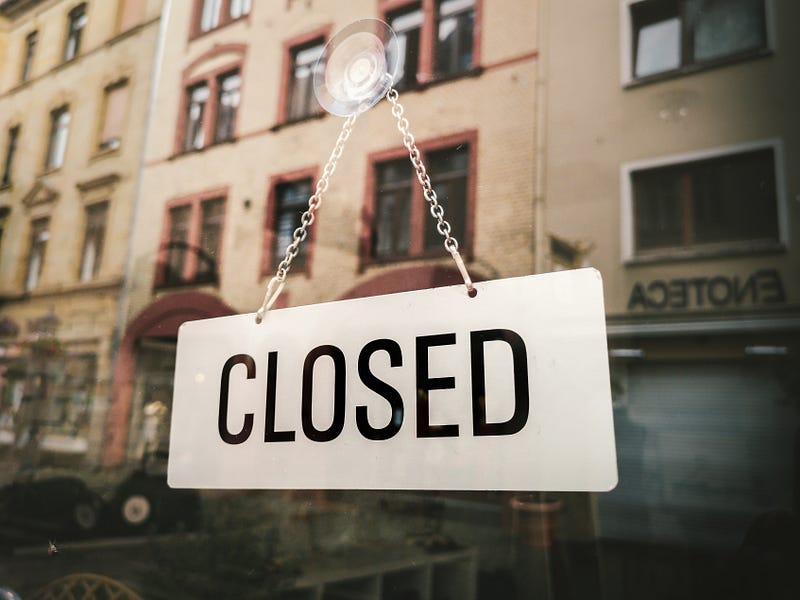Thirteen Mistakes People Make When Trying Polyamory
Updated July 2025
So, you’ve decided to give polyamory or some form of non-monogamy a shot but you’re not quite sure where to start or you might even be wondering if you’re polyamorous or not. Maybe you have read a few things here and there or nothing at all. Or maybe you have started already, and you’ve done one of the things listed below.
Either way, welcome. I’ve been writing a polyamory advice column for about three years now and responding in various polyamory communities — and I see a lot of similar questions. So, I’ve tried to summarise some of the basic mistakes or pitfalls in polyamory that many people make when they’re getting started.
Ready? Let’s go.
1. Making rules to stop emotions.

A good deal of people figure out that monogamy isn’t for them fully when they are in a monogamous relationship. Naturally, rather than trying to lose their partner and a relationship they love, they introduce the concept of polyamory to their partner. To try to soothe some of the feelings of fear and guilt, many people will begin with one rule that’s simple: “I won’t fall in love with anyone but you” or “Other relationships will only be about sex but ours will be about love.”
There are a lot of problems with this approach. Sure, there are people out there who know themselves well enough that they can say for sure that they have one-night stands without ever having feelings beyond that. Some people know what triggers some of their desire for deeper intimacy and how to avoid it. But even then, never say never.
When you create a rule, you need to also imagine what your plan will be if that rule will be broken. You also need to think about what the rule is designed to prevent and whether it can prevent it. The problem with this rule is that it’s placed there as if it’s going to stop feelings from happening — and it won’t and can’t.
If we could all control how and when we felt love or desire… well, there’d be a lot less problems in relationships. It’s just not that simple. You can’t always control your feelings. And the moment between when you start feeling something beyond just attraction to someone to something more can be hard to nail down.
Intimacy can happen without checking in with you first to see if that’s okay. If you’re only looking to open your relationship to have new and different sexual experiences, then it’s probably best to just consider hiring a sex worker occasionally rather than trying to form partnerships that have every potential to lead to the intimacy you’re trying to avoid.
This rule is almost always created out of a fear that creates an inherent imbalance of power. People put this rule in place because they are afraid of losing their partner. But the truth of the matter is that, if the basic rule that holds monogamy together doesn’t stop someone from falling out of love, then this rule won’t either.
2. Choosing the wrong anchor.

There are so many ways to do polyamory and non-monogamy but unilaterally, agreeing to non-monogamy means agreeing to a situation where your partner doesn’t spend 100% of their time with you. Plenty of monogamous relationships are like this too, if one or both people have a time intensive career. But recognising your partner will not spend all their time with you has to be something that you accept and are fine with, first and foremost.
If that’s good, then you need to find your anchor. Your anchor is what you’re going to hold onto when the waters of non-monogamy get extra rough. Your anchor is what polyamory brings to your life. That can be anything and ultimately no one else is going to be able to decide that for you. Individually, even if you plan on being monogamous to a polyamorous person, you must find a reason for your own benefit that this works for you.
For me, being non-monogamous allows me to have multiple romantic relationships which is what I want in my life and it gives me the freedom and autonomy I need. For some people, it might be that they get to have looser boundaries between friends and lovers. For some it means they might get a whole bed to themselves regularly and have a good amount of alone time that they might need.
It can really be anything, but it can’t and should never be that you won’t have to break up with the partner who is asking you to be polyamorous when you don’t think you want to.
Your anchor must be only about you. And while you may think not breaking up with your partner is a really big selling point to trying polyamory (and sure, it may be a good fringe benefit), the fact of the matter is that when people make this their anchor or their sole purpose in trying it, they are doing so with an understanding that what they are saving is the relationship between them and their partner as it stands. What you are trying to save is already gone.
Remember! In order to agree to non-monogamy from the start, you must agree to a setup where your partner will not spend most of their time with you. That means, once your partner asks you to try polyamory and you agree, your relationship will not be the same because it can’t physically be the same. They will be gone sometimes. They will have to balance their focus between you and someone else. You may scoot by a bit if your partner doesn’t immediately find other dates or other partners, but the reality of the situation, if this is your anchor, will come crashing down in a very un-fun way.
It’s okay to not want that. It’s okay for that to be such a major downside for you that it’s not even about jealousy or a fear of losing them. Some people just don’t want children. Some people want to live in a suburb and some people want to live in a city. Those are other physical space deal breakers for people in monogamous relationships. If you want to have a partnership where you spend most of your time with your partner, even if you don’t feel jealous of them fancying someone else, then that’s totally legit.
It’s hard to know if you’re motivated to try polyamory because you want to or because you don’t want to lose your partner. And you may not really know if it works for you unless you try. But if you can’t find a reason other than keeping your partner for an anchor, then it’s going to be a very big struggle because when change happens and you start to have to cope with it, you won’t have anything to ground you. If the entire point of trying it was to keep them and they aren’t even there with you, you’re going to wonder why you did it in the first place.
3. Not expecting to be afraid.

You’ve probably heard polyamory can bring so much joy to your life — and it can. Just like parenting. But also, just like parenting, it is a life changing decision that is sometimes hard — one you might even sometimes regret, despite its benefits. Parents will attest that there is a definite taboo in discussing how hard parenting can be and even having feelings of regret and, even though polyamory is not mainstream, there is an internal communal taboo we enforce on ourselves about being too honest with how shitty polyamory can be.
It’s understandable. Most people know about “open relationships” and think they “don’t work”. You’ll find, amidst many posts asking for advice, the forced cult-like posts begging for positive stories — as if we have something to prove to the wider world. For people who want to assimilate into “normality” and be essentially the polyamorous version of Leave It To Beaver — very white, very picket fence, very heterosexual and very Good in that regard, are going to want to sell polyamory to the mainstream.
That’s not something I have any interest in — in more ways than one. I’m going to err on the side of truth than an attempt to convince you of the legitimacy of polyamory. Polyamory hurts, a lot. That’s because relationships can and do hurt a lot. The more you have, the more it will hurt. Monogamy, however, also hurts. Remember when I mentioned that people make rules out of fear? They make rules in fear of eventual pain and loss.
What I’ve found immensely helpful is recognising the reality of the situation, which is going to sound dour, but hear me out: every relationship you have is going to end. That’s not me being pessimistic. That’s reality. You will at some point have to say goodbye to every person (and indeed many animals) you love, or they will have to say goodbye to you. I can’t speak to the nature of what happens after we die, but one can say that it’s unlikely that, if anything, happens, it won’t be identical to the life you have now. The only thing constant is change.
After reckoning that it’s a fact that any relationship you enter will end, you must accept that, to a certain degree, this is not something you can control. Obviously, you can control your own actions. You can choose to be cruel and abusive to your partners. You can choose to cheat. You can choose to disregard their feelings or your own. But you can’t ultimately prevent someone from falling out of love with you. Ask yourself — if monogamy doesn’t prevent people from falling out of love with their partners and falling in love with new people, why would any rule you create prevent that?
It seems counterproductive but the fear that you often experience the first night your partner is seeing someone new, when your partner gets a new text, all of those things… it’s based in your survival brain trying to help you prevent pain. And it makes logical sense. It wants you not to end up in a bad situation. And in doing so it puts the responsibility for preventing losing your partner on your shoulders — and not in a nice helpful way where it tries to encourage you to be attentive and caring but in a shitty way of telling you that if you don’t do something, your partner will lose interest in you.
When you realise that, outside of being a nice person and sticking to your word, you cannot control or change if your partner falls out of love with you, you relinquish yourself from the responsibility to prevent it. You accept that you fear it, but you can’t do anything to stop it and it will help you lessen the anxiety. When you also realise that monogamy doesn’t stop this from happening either, you’ll also be able to realise that, as much as your brain is telling you that choosing polyamory is somehow riskier, it isn’t. But more on that later.
Re-framing your fears and realising what you have control over — as well as giving yourself permission to be afraid — will help you cope with the anxiety better. It’s precisely because of this rose-tinted portrayal of polyamory that too many people assume polyamory is going to make them feel happy immediately and it doesn’t always make you feel great. It will scare you. But if you realise what you can control, those fears won’t smack you so hard.
10% off The Anxious Person's Guide to Non-Monogamy
Use the code NONMONO10 to get 10% off of The Anxious Person's Guide to Non-Monogamy on the Jessica Kingsley Publisher's website. If this code doesn't work please email me at business@nonmonogamyhelp.com and I will make sure you get your discount.
This code should work on both the North America and the UK/Europe JKP websites.
4. Assuming all polyam people are compatible.

Outside of establishing your anchor and figuring out what you can and can’t control, so many people beginning in polyamory assume that being polyamorous is all the compatibility information you need. But there are many ways to do polyamory.
There are also many ways to do monogamy — we just assume sometimes that the way monogamy is sold to us by society is the way everyone is supposed to do it. Some of the things people attribute to polyamory such as being free to find others attractive or flirt with others could happen within a monogamous relationship. And, as I said previous, you could be in a monogamous relationship where you see your partner just as much as a polyamorous person might. Two people can be polyamorous and still incompatible in terms of how they want to do their relationships.
You may not know this when you’re starting out, but it’s important to think about the physical aspects of it and your ideals. Let’s say you could design your version of perfect polyamory. How many partners do you have? Do you live with them all? How often do you see them? Do you meet their parents? Do your partners meet up on their own? Do you have children? This might seem like a lot to think about but if we consider that because monogamy is so engrained into our culture, we’ve been able to passively think about what our monogamous ideal might look like for many years before we actually enter into any relationships. And usually there are films and cultural examples to draw directly from.
In this case, you may not have any good real examples of what your ideal relationship might look like and blazing a new trail may be fun for some, but anxiety ridden for others — or both. It’s hard to know what’s realistic and what isn’t but start from your ultimate ideal and then think about your life now and how physically you can get closer to that.
For example, my ideal would be living in a house big enough where I could have my own space, two domestic partners who are at least cordial with one another, maybe one long distance partner I visit twice a year, lots of cats… you get the picture. Some people can have eight different relationships, but some people reach what’s jokingly called as their polysaturation point at two partners. It depends.
In terms of how this ideal applies to my real life, I accept that it might be a long stretch to expect two partners to be able to live together. I may have to be okay with a co-op type of situation where my metamours (a metamour is your partner’s partner) also live with me or just have one domestic partner. I also must look at my energy levels and think about how frequent I might be able to travel to see another partner without being exhausted. Maybe I have two nights per week I can designate to spending with a partner I’m not living with — something like that. When you have your ideal you can work from there to figure out what is feasible.
Once you know that about yourself, it’s about talking this out with other partners. I may meet another awesome polyamorous person who I get on with, but if they have no desire to cohabitate with any partners, then I have to accept that but work around it to make sure I see them enough to feel connected. Likewise, if they have an ideal type of polyamory where their partners are all friends, they’re going to have to not pressure me into befriending people I have no commonalities with and accept that maybe being cordial is as far as I’m going to go with my metamours.
Things like that can help you also get to the bottom of whether you’ve got the wrong anchor. Usually people who are just trying polyamory because they want to keep a partner will really struggle to have any kind of ideal in their head, even as an exercise and the thought of their partner spending days away from them or changing how they currently do their relationship is going to really start to make them see that they’re probably less interested in polyamory and more interested in keeping something that’s already gone.
You may feel a pull to sacrifice some of your ideal if you and a partner are polyamorous but not fully compatible. It’s hard for me to tell you when you’re giving up too much of what you want for someone else but it’s something that will show itself in time if you’re not able to realise it yourself presently.
Lastly, I also find that sometimes people, rather than using polyamory to find multiple, fulfilling relationships, they instead use polyamory as a way to stay with people they aren’t compatible with. That’s not to say that you can’t find other people who meet needs that your partner doesn’t have any interest in meeting. But if your partner is, for example, a poor communicator or doesn’t value you, you’re not going to be able to solve that by adding another person to the situation.
Don’t assume that if a relationship is broke, adding more people is the answer. Polyamory will not fix a relationship that doesn’t work and if you’re in a relationship that genuinely doesn’t bring you happiness or work for you, don’t just use polyamory as a way to avoid a breakup.
Not all polyamorous people are compatible, and it's important to understand your own approach to relationships. Take our polyamory quiz to discover which relationship pattern might resonate with you.
5. Assuming unhappiness is a faliure.

If you are opening or starting a new relationship, you’re re-building or building foundations. Think of opening a relationship like a major life shift such as moving or having a new child. You are re-adjusting and re-building a foundation and in the case of starting a new polyamorous relationship, you’re building a new foundation. That means that you’re logically going to have a lot of anxiety around even what seems like a small shift or change.
People can be in monogamous relationships for 10 years with a solid foundation and still experience a lot of strife when they open — just like they might if any other major life change came along. Having a solid foundation with one another can help, but you’re changing the nature of the way you do your relationships and you’re going against what you’ve been taught for a good deal of your life: that the primary way to demonstrate your love for another is through romantic, sexual; and to a certain degree, emotional exclusivity.
Even if you had a long-lasting monogamous relationship that worked well, you’re challenging its foundations because your bond of trust was built on exclusivity. So essentially, you must see it like you’re starting afresh, and you honestly should see it that way because sometimes holding onto “the couple” creates more strife, but I’ll address that later.
Likewise, when you are dating a new person, even if you’re both single but interested in polyamory and starting off new, you’re just building trust with that person. In both cases, you must build a new idea of what connection, intimacy, commitment and value mean in relationships when you can’t rely on exclusivity to do that work. In the case of two single people, you may not have what’s known as the relationship escalator to fall back on — so you may have to create your own meanings and milestones.
People often get hyped at the idea of starting polyamory and feel fine when their partner meets someone new — maybe even excited or happy for them. But then the first night away or first date comes and suddenly, the emotional wrecking ball can decide to make an appearance. Theory is one thing, but practice is another. I can’t count how many scenarios I have seen of people who were happy, eager and perfectly fine until the first night that they really had to put their trust in someone to the test.
What I find useful is to expect the worst — especially in the beginnings of a relationship or trying polyamory. Too many people try to avoid this, delay it by putting in rules or, worse, asking their partner if they’re okay fifty times in one evening to try and prevent negative feelings. Sometimes some compromises can be made. Earlier in my relationship with my domestic partner, if they were spending the night away, I asked to have a quick call to say goodnight before they went to bed. As we’ve established trust with one another, I’ve needed this less and less.
But the first couple of nights they spent even just at all night parties, I struggled to sleep. I tossed and turned and couldn’t get the idea out of my head that they’d find someone better, keener on parties who was less anxious and better than me in a thousand ways. I was worried I’d lose them or worried I’d let my anxiety out somehow and I’d overwhelm them with neediness. I did the typical thing and gave myself a “date” and tried to run a bath. Sometimes it worked, sometimes it didn’t. I didn’t always have friends I could spend the night with. And most of the time I just had to sit through the anxiety and cope.
Maybe that won’t be your experience, or it hasn’t been — and that’s great! But I find it more useful to expect this because it throws so many people off guard. Expect you or your partner will not feel great and know sometimes the only way out is through. Sometimes the only way to know your partner isn’t going to ditch you is to see them come back to you. Sometimes the only way to cope with anxiety is to sit with it, know you have been there before, and wait until it goes. This is when having your anchor is most valuable.
It’s also worth remembering that even if you feel fine one night, something can come along that tips the balance of your fears that triggers the emotional wrecking ball back into place. If you experience another major life upheaval like a death, being fired, being injured, etc. you may feel a lack of stability in general and feel extra vulnerable to your partner going out with others. In those specific cases, sometimes I might suggest your partner reschedule temporarily, but even then, I think there is a value to trying to refocus yourself on your anchor and re-framing your fears again, even when you feel more vulnerable.
Be prepared for the worst and you’ll be pleasantly surprised if your night is fine. I think half of what can make this experience so terrible is not knowing it’s around the corner.
You can also get an audio version of this article on Spotify.
6. Thinking a triad is safer.

The amount of fear and uncertainty you face when looking out at what your future might look like in a polyamorous or non-monogamous relationship compared to what you’re used to feeling in monogamy may make you think that there is a ‘safer’ way to try polyamory out. There are safer ways to trial situations where your partner sleeps with other people, such as hiring a sex worker, but I don’t really feel like there are ‘safer’ situations or ways you can get around avoiding the anxiety you may feel when your partner can and does have feelings for someone else.
What many people do in response to this trepidation is decide to only open their relationship a smidge — just enough for one other person to join them in a closed, eternal and ethereal threesome. You know how people say that if it sounds too good to be true, it is? I’m not saying that good, solid triads can’t exist. They can and do. And I don’t necessarily believe that some relationships are “harder” than others, but I do think that people don’t realise what a triad really means when they think it’s ‘safer’.
Forming a triad isn’t forming one big loving three-way relationship. Forming a triad means forming six different relationships where two of those six relationships have a much longer history than the rest. Imagine if you had one best friend and you expected both you and your best friend to find a third best friend where you both immediately felt the same about that third best friend and you all were going to hang out together all of the time. No one would expect that from their friends and expecting it in love is… a lot.
The expectations couples have when they want to form a triad is often what spells the disaster of one. First and foremost, the expectation that is the least ethical is that the relationship between the couple is more important. And it might be that people don’t overtly think this, but you can tell in the way they verbalise how they want to open their relationship (referring to a “third”, talking about “our” partner, or using “we”). It’s also, to a certain extent, very understandable to want to choose a relationship that you’ve spent years cultivating (especially if you have shared assets together), if forced to, over a relationship you’ve spent less time cultivating. And the less you’re willing to confront and deal with the power imbalance, the more likely it is to come out.
Secondly, the couples who want to form a triad almost always expect someone to be into both people “equally” without any understanding that relationships are individually different and develop at their own pace. Putting pressure on one person to not only be interested in two people in the same ways at the same pace and demonstrate that is a lot to put on one person. When you see a triad as six individual relationships rather than a couple playing tug of war over one person, you learn to see the relationships as individual things that need to be worked on their own and given their own unique time.
Thirdly, the couples who want to form a triad usually do so in a way that is discriminatory. Quite often a heterosexual cisgender couple will choose to only have one other woman involved because there is an assumption, usually from the man in the heterosexual relationship, that a woman is less of a threat to him. A woman won’t steal his woman away. And the woman in the heterosexual couple may not be interested in picking apart the toxic masculinity, heteronormativity and heterosexism involved in that assumption — or the woman also doesn’t think a woman is a threat.
If I must go into detail about why a woman is just as much of a ‘threat’ as anyone else… well. The couple see a triad as an upgrade to their already existing partnership rather than being a completely different way to do a relationship all together. They see it as adding juggling to their circus act instead of switching from being a juggler to a trapeze artist.
Does that mean a triad is always a bad idea? No. Three people can just so happen to be into each other at the same time. Or you can be polyamorous with someone else and then both develop a crush on the same person. But the issue becomes when your choice is more motivated by protecting the “couple” over anything else. If you feel no inherent threat over the thought of dating individually or treating the relationships you form as individual, then there’s no reason to jump directly into a triad when you’re starting out.
7. Giving your partner permission.

We all know what cheating is, right? And when you are allowed to sleep with other people or pursue romantic relationships, that’s not cheating obviously but you’ve been told constantly that exclusivity is the ultimate sign of love so it’s unsurprising that so many people feel “wrong” when they try non-monogamy for the first time.
What someone defines as ‘cheating’ is often not as simple even in monogamy, but people are so used to the script of monogamy, they often never think to really discuss how they define cheating. They go into relationships and don’t think about it until something comes up — maybe they’re a little too close to a friend or they participate in a cam feed where they can specifically request the cam model perform a sexual action.
Even in monogamy, I would encourage people to come to a mutual definition of what constitutes cheating precisely because it’s not even clear in monogamy. For me, hiding something, even if it’s just a kiss or holding hands, is cheating — with an exception made for withholding information temporarily during a crisis. Likewise, helping someone cheat knowingly is also cheating to me. Other people may feel differently and throughout my relationship I have added the addendum about withholding information after my partner quite rightly decided to wait to disclose an incident until after I had dealt with mourning a serious event.
There’s no way to get around it — disclosure is awkward and even after being in several polyamorous relationships, it’s still awkward for me. It helps when you have a shared Google Calendar so you know if your partner is spending time with someone else but it’s really hard to figure out when to disclose a relationship or sex with someone else and it does feel a bit like you’re telling a parent you did something. I think part of the awkwardness is just inevitable. Sometimes this is so awkward, and people are so afraid of hurting their partner, they hide things and end up cheating a bit on accident.
But another way people try to cope with definitions of cheating and disclosure is by creating a situation whereby they pass sexual and romantic decisions through their partner before they go ahead with everything, so they don’t feel anxiety. In fact, this is a common first timer rule. “Let me know before you do anything,” “I have to meet all partners before they become partners,” or “Tell me when a relationship escalates”. Even a situation where you aren’t explicitly giving permission can still feel like that. On the surface, it might seem sound and understandable. After all, the rule isn’t explicitly saying you get to approve your partner’s partners, so it’s all right. Right?
The problem with permission is a simple one: you aren’t going to want to say no to your partner — even if you have an incredibly valid reason to say no and you honestly shouldn’t say no. This is an impossible scenario which makes you feel like you’re not allowed to change your mind later. Sure, there exists situations where you say yes, and everything works out. But if you say yes and you don’t like the person or don’t feel great about it, it almost feels like you’ve lost your ability to object to anything. And is saying “no” a real option?
When people ask for permission, what they sometimes understandably want is absolution. They want to make sure their partner is “okay”, and they don’t want to cross a boundary. It comes from a very good place. Very rarely is a permission rule about trying to actively control who your partner dates. But the assumption there is that if your partner isn’t feeling great, you shouldn’t pursue that hook-up or that date. And the problem with that assumption is that, especially when you are just starting out, you’re only going to have negative feelings if there’s something wrong.
The assumption is that negative feelings are an anomaly rather than a norm. It often ends up causing people to damage the relationships they build with others (especially if they keep cancelling on someone or worse, actively tell other partners that it’s because of their partner they can’t date) and usually delays the inevitable. Sometimes people find it difficult to go on a date or pursue a relationship while their partner isn’t feeling great about it and it gives them an enormous amount of guilt so they want assurance their partner is “okay” before they go off.
But giving permission is a double-edged sword. It only works if nothing ever goes wrong. And when things do go wrong, it often exacerbates things or delays the inevitable. And it’s not to say that your partner shouldn’t care to check in on you or that it’s wrong for you to want to be sure your partner won’t be upset with you if you go out on a date — but there isn’t anything that this rule solves that isn’t better solved by reassurance, communication and sitting through inevitable anxiety rather than avoiding it.
8. Forcing yourself to mingle with metamours.

My first experience of what I could technically call polyamory involved me not saying what I wanted from someone and him using me to cheat on a partner he began dating a year after we began talking to one another. He was adamant I not reach out to my metamour and, having been truly frightened into being a ‘good partner’ by the spectre of The Jealousy, I opted to be a sensible partner who respected his boundaries and didn’t contact his new partner as he requested. After I broke up with him, I later met my ex-metamour at a party and well… they had no idea who I was.
From that experience, I was determined to meet and befriend all my metamours — if purely just to be sure that I wasn’t helping someone cheat. I didn’t want to rely on my partner’s word anymore, since I’d been burned. What ended up coming of that was that I forced myself, an introvert with social anxiety and a general disinterest in small talk, to be “friends” with people I had little in common with and it made me say some of the bitchiest things to people I’ve ever said in my life. I was convinced that in order to reach an upper echelon of polyamory, I had to be besties with my metamours. The best way to advertise my emotional responsibility and ethics was to be best friends with all my metamours to prove to the world I could “handle” polyamory.
I also expected to feel “compersion”, what’s known as the “opposite” of jealousy where you are happy for your partner in dating other people. When I didn’t feel it, I assumed lacking it meant something bad about me. I wasn’t polyam enough! Something was wrong with me! There was some jealousy I had buried deep down somewhere, or some type of monogamous-centric culture hang up I had to get over in order to feel it. I often compare this to when I assumed that being on the asexual spectrum meant I had hang-ups from a sex-negative Puritanical culture instead of just feeling differently to others.
Because polyamory materials for beginners can often stress this picturesque ideal of everyone sitting down at a big Whoville table together over a meal and make you feel like your heart is two sizes too small if you don’t desire for that to happen, wherever possible I remind people that they do not have to even meet their metamours, let alone be best friends with them. People are so afraid of being seen as being in a “don’t ask, don’t tell” style of relationship and so worried about proving how polyamorous they are, they often force themselves to know more than they need or meet people they don’t need to meet.
If we were monogamous, we would not see it as a complete and utter requirement that our partner not only meet but get along great with all our friends and family members. We might expect them to be cordial and polite, but we would never demand them to form an intimate bond with these people. In fact, the relationships subreddit is quite often filled with people who demand their partner put up with toxic, even abusive family members for the sake of the relationship and a flurry of individuals who will say that no, you do not have to.
Try to avoid putting any hard lines around your expectations of the relationships you have with metamours. I don’t know if it’s always a good idea to refuse to meet any of them and equally it’s not a good idea to be forced to meet any of them. If you can’t trust that your partner has sound judgement and feel like you need to meet them to prove something, there might be some bigger issues going on. And if they annoy you or you don’t get along, you don’t have to share a space together or go to things together. It might get tricky to negotiate boundaries, but it’s possible to not be in a “don’t ask, don’t tell” situation and never meet your metamours.
It’s okay if your ideal is that your metamours get along. Most of our ideals for relationships include our family and friends and anyone who is important to us getting along. But if you’re looking for what’s called “kitchen table style polyamory” (which just really illustrates to me that I grew up around a very different kitchen table than most polyam people…), maybe be willing to adjust that expectation because if you date two people who just don’t get along, there’s no real way to force them to.
9. Trying to be an emotional gladiator.

In another attempt to avoid accidentally cheating, many people trying polyamory swing to the opposite end of the “don’t ask, don’t tell” spectrum and, even when no one has explicitly asked, they decide telling everything or asking to know everything, in excruciating detail will somehow prevent something terrible from happening. While there are definitely people who enjoy details either for sexual or just plain happiness reasons (just as they might enjoy hearing a friend tell them about a crush they have or a new date), I do sometimes feel like people push themselves or their partners to hear details in an attempt to prevent what they cannot prevent.
Putting yourself through some type of emotional polyamorous bootcamp by hearing every detail will not prevent what you think it will prevent. The philosophy behind this mindset seems to be thinking that knowing what is coming is better than not knowing — that somehow through all of the details of someone else’s encounters and relationships you’ll be able to spot an impending breakup or disinterest like reading tea leaves, except reading tea leaves would probably be a lot easier on you. The other type of a philosophy is, instead of delaying the inevitable, one runs into the fire barenaked thinking that somehow being able to weather the emotional pain of the details will get you used to polyamory in some way.
Even if you were attempting to get rid of arachnophobia, the way to do that wouldn’t be to launch yourself face first into a pit of spiders. But because people are told that jealousy isn’t a rational, logical emotion that may be very called for in some situations, they think that jealousy is some type of vestige of monogamous society and the only way to rid oneself of it is by throwing yourself over the precipice. Feeling hurt by the details of your partner’s dates or even the fact that your partner is interested in dating others makes logical sense. It’s not a flaw, it’s a result of living in a society that’s taught you that someone is only really in love with you if they feel nothing for others.
Monogamous people can feel betrayed by the mere thought that their partner is interested in someone else. We’re surrounded by a society that gives us a very particular message about jealousy — when it angrily comes from white men it is righteous, it is normal, it is part of being a man and a great motivator. Whereas, we’re told that jealousy coming from women of any kind is needy, even if it is somewhat understandable. The idea that the level of jealousy you experience and display when your partner shows interest in someone else is directly proportional to the amount of love you feel for your partner is heavily prevalent.
With that in mind, we need to be a little bit gentler with ourselves. Because of the pressure we’re also facing to prove that non-monogamy “works”, it feels like we’re supposed to be emotional gladiators and prove ourselves in the stadium of relationships by hearing all the gory details. People are also worried that not telling their partner the absolute truth may cause them to be accused of cheating later. Deciding when to disclose and what to disclose can be tricky, as we’ve discussed. If you have a conversation about cheating and what that means and when and what to disclose, make sure that there is a reason behind it.
Part of the rationale for me knowing when my partner is dating someone else is for a practical reason which isn’t about preventing emotions: If I’m making a meal for them, I’d like to know if they aren’t going to be there. If they have done something which increases their sexual health risk for contracting an STI and thereby affects my sexual health risk, I’d like to know. If there is going to be a change in my expectations of the time we spend together, then I’d like to know. None of this is about preventing me from feeling emotions or about trying to max me out so I don’t feel emotions later.
I’ve specifically requested not to hear details during times when I’ve felt less confident about my body or my personality. Sometimes, I’ve not known to ask for this until my partner has given me a detail and I’ve had some feelings about it. But I try to accept I have some feelings, let them know, ask for re-assurance and then ask for a bit of space on something that might cause these feelings to come back. I know because I’ve had anxiety that forcing myself into anxious situations doesn’t rid me of my anxiety. You can’t inoculate yourself from emotions this way.
All relationships have arguments, disagreements, and low points. We expect ourselves to be always happy in polyamory in a way we never expect ourselves to be in monogamy. In fact, many comedians make careers off telling jokes about how terrible marriage is. Part of this attempt to hear all of the details, when it’s not based on legitimately enjoying hearing details, comes from a place of trying to prevent low points and bad feelings and the result is that it inevitably causes more strife than it needs to.
Conversely, there’s also something else you want to consider. I’ve read situations where partners have read message exchanges between their partners and other people and have not considered whether the other partners are okay with their metamours seeing these conversations. Telling your partner all the details of your encounters, relationships, or dates may violate the privacy of the other person and very few people tend to ask directly if they can spill all the beans to their other partner. Even if your partner loves hearing details and it isn’t a trigger for anxiety or stress… consider making sure if that’s okay with your other partner in the first place.
Lastly, it may be possible over time for you to hear details without being afraid or the details triggering anything. You could never have a problem with details and then suddenly have a problem with it after a bad experience with something. You can experiment with this and slowly ask questions but have an understanding between the two of you that you may need to nope out of the conversation if it’s bringing up a lot of anxiety. Maybe at some point you won’t care, and you can slowly wean yourself into being comfortable and not threatened. But, in the name of all things that are holy, stop exposing yourself to the worst things like you have something to prove. When you die, I doubt your tombstone will say, “Here lies [X]. An emotional gladiator who could stomach any detail you’d threw at them.”
10. Making it a competition.

One of the most frequent things you read on polyamory forums and polyamory articles is the idea that one person can’t meet all your needs. Usually this is expanded to include the entirety of the billions of humans on Earth in a way that ignores the very, very many people who have remained monogamous their entire life and that’s absolutely met their needs. I get the philosophy behind it, especially if you don’t personally feel fulfilled by one relationship.
The problem this inevitably results in is the philosophy of what folks call Polymon — where you’re trying to collect a partner to meet each need. In a way, it simplifies the connections we build in romantic relationships to something that ignores their complexity. And if you’re going to introduce polyamory to a monogamous partner by saying, “So I’m basically very unfulfilled in this relationship,” that’s, in blunt terms, a shit sandwich to someone who does feel fulfilled by monogamy. There are nicer and more dynamic ways to say that you desire to have multiple romantic relationships in ways that don’t start your partner off feeling like they are less than.
It’s not surprising then that many people starting off see it as a race to the finish, sometimes not really considering themselves polyamorous unless they have at least two partners minimum. Some couples even make specific rules that don’t allow their partners to have other official partners until they do. And even people who don’t believe that one relationship is inherently unfulfilling will find themselves in this trap and put so much unnecessary pressure on themselves or their partner to find someone else right away, especially so they have somewhere to go or something to do while their partner is on a date.
Most of the time, when two people begin a polyamorous relationship, one of them will have more success finding partners than the other. That can be for a variety of reasons. I’m an introvert who dislikes small talk and prefers to be at home and my partner is someone who loves parties. It’s very understandable they will have more “success” than me. Some people find married men, even if they swear, they are polyamorous and their wife is cool with it, automatically suspect.
People read as women might get more messages on dating sites — but a good deal of them will be harassment from people who may still think they’re cheating on their partner, but don’t necessarily care. This often causes a huge amount of distress as well because one person may feel like they need to keep up or just feel understandably frustrated and even jealous that their partner has had success and they haven’t.
On the other side of the “competition” outlook, you have people who, maybe because of this idea that one person isn’t fulfilling, have an enormous amount of anxiety that their partner will find someone who is “better at” something than them. Polyamory becomes a competition they feel destined to lose. There are two things that counteract this mindset. The first is like re-framing your fears. There are billions of people on this planet and likely there is someone out there who is “better at” something than you and your partner may in fact meet someone who is “better” in some ways than you at any given thing. That’s inevitable.
But what you have to realise is that, just as we’ve grown up in a culture that tells us exclusivity is how we show love, we’ve also been told by a society that wants us to consume as much as possible, that we will only get a good partner if we are the best we can be. Buy this cream. Do this diet. Change yourself in these ways so that you can become more attractive. These feelings are tied into some of the basic reasons why we feel self-conscious or insecure about ourselves. And it’s very hard to just shrug that all off with the advice a lot of polyamory websites give you — just realise how sPeCiAl you are!
Realising that you’re motivated by a consumerist, capitalist society to believe that you are inherently incomplete or unworthy unless you do something to impress somebody else helps counteract this fear. The issue I have that ties in with this about the “no one person can fulfil all your needs” is that it constructs a reality where we are all incomplete and we require a certain amount of others to make us “fulfilled”.
Now, I’m not in any way advocating rugged Western individualism — in fact, I think that’s harmful as hell. We get told we need to compete to find lovers but also somehow pull ourselves up by our own bootstraps and that it’s shameful to rely on others for help. There’s a reason that solitary confinement is torture. As much as I’m lax to admit this as a near recluse, you do need people. That’s clear in how many problems come from, not a lack of self-care, but a lack of community care.
But what community care should motivate us to do is see the inherent worth we have as individuals. It’s okay to want people in your life. It’s okay to have needs. But seeing ourselves as flawed human beings inherently if we don’t have those needs fulfilled always creates more anxiety and stress and doesn’t solve the problem. We can cope better about not having the connections we want to have if we don’t see ourselves as inherently broken without them. Releasing the expectation on yourself to date a certain amount of people or have a certain amount of skills can help lessen the feeling that it’s a competition for the most partners or the most skills.
Don’t get me wrong. It does suck if you aren’t getting any dates and your partner is getting tons, but returning back to your anchor and reminding yourself that dating is hard if you’re monogamous and the pool is smaller if you’re polyamorous might make that a little easier.
11. Closing or vetoing a relationship.

When people experience some of the rougher emotions and situations with polyamory, they may feel like the best way they can cope with the situation is to veto a partner or close their relationship all together. The thinking behind it does make some logical sense. Opening a relationship causes you stress.
Closing it temporarily can give you some relief from the full flood of emotions you experience. And it probably does relieve some of the immediate emotions and fears you have, especially if your problem is that your partner is so wrapped up in their other relationship, they aren’t focusing on you.
The problem with this is that, like a lot of the other things here, it either doesn’t prevent what it’s intending to prevent or it’s delaying the inevitable. The first big thing to remember when thinking about closing things up is to challenge the assumption that monogamy is inherently safer. Most people close a relationship because they are afraid of losing their partner.
They want their partner to refocus on them or repair some problem. But in practicing polyamory, you must be able to focus on different problems in different relationships without having to break up with other people. That might seem like a lot, but we also kind of have this expectation with friendships and other relationships in our life.
If we have more than one child, we need to be able to give each child what they need without ignoring another child. If we make new friends, even if one friend has more needs than the other, we can’t just blow off everyone else for the sake of one of our friends. And a lot of people don’t feel very happy when their friend starts dating someone new or gets married and never wants to hang out anymore. And some parents with a lot of children struggle to divide their attention equally or focus on a child with more needs without ignoring their other children.
But this is part of what we deal with when we’re navigating all relationships. Sometimes things happen in life where we have to tell people that we need space or we don’t have the time to devote to them, but we generally don’t completely cut them out of our life because one relationship is more important than anything else.
In fact, if someone is trying to force you to end relationships, like friends and family, and favour them… that’s a big red flag for an abusive relationship. I’m not saying if you’ve tried to close a relationship or enacted a veto, it’s abuse. I’m saying that, as understandable as it may be to feel like that’s the only way to get control, it’s not how we behave in other relationships when we’re having them in healthy ways. If you want your partner to be able to be a good partner in a polyamorous relationship, they should be able to manage the struggles between you while also dating others and if they can’t, forcing them to end those other relationships will not change that.
Monogamous people can and do fall in love with other people, as I’ve said before. If you feel your partner slipping away or they are not meeting your needs, closing the relationship in and of itself may jar them back into focus for a temporary time but more likely than not, it’s going to create more resentment and unhappiness than it helps. Remember, you can’t prevent your partner from leaving you. If they’ve decided to use polyamory as an excuse to replace you, forcing them to dump the other person can’t fix that. If they are not affectionate with you or aren’t treating you as well as someone else, forcing them to leave that other person won’t fix that.
Even if you are faced with a situation where your partner is being mistreated by someone else or is about to enter into a relationship with someone who you think is toxic and bad for them, forcing them to break up with that person isn’t going to fix that. One of the books I think is a must-read for anyone is “Why Does He Do That?” by Lundy Bancroft. It breaks down the mindset and the behaviours abusive people do and, more importantly for me, it made me realise that if I saw someone in an abusive situation, me forcing them out of it could make me very similar to the other abusive forces in their life. They must make that decision themselves.
Finally, closing a relationship or vetoing another is incredibly unfair on the other person involved who has had zero say in a decision that changes their life. Especially if you are a couple opening your relationship, having someone get involved who already has a lack of power and then chucking them the moment things get rough is incredibly painful. No one wants to be chucked aside and, even as you are in the midst of fear of losing your partner, it’s very important to remember the humanity of others involved — even if you’re irritated with them or even if they are purposefully trying to intrude on the relationship you have with your partner.
Not every person who tries to close a relationship or uses a veto is a controlling monster. I tend to find people use vetoes or close their relationship out of fear of losing their partner. Rarely do they ever really intend to hurt anybody else. It’s usually a last-ditch effort in a desperate situation. You must ask yourself, if you are feeling so desperate that you want to close the relationship or veto another person, if there aren’t deeper problems in the relationship that cannot be solved this way. A veto and closing a relationship are a flimsy bandage over a gaping wound.
12. Ignoring inherent power imbalances.

If you’ve been reading about polyamory, you may have heard the phrase “Love is infinite”. And it’s true. Time and energy, however, are not infinite. We only have 24 hours a day to devote to a variety of things. And those of us with chronic health conditions and/or mental health struggles may not have the same level of energy or spoons as it’s called as others. We then must make decisions about how we spend our time between all our relationships.
One of the biggest reasons why people don’t immediately break up when one part of a monogamous couple has an interest in polyamory that they can’t ignore is because of the time and energy that both of those people have spent building that relationship. In some cases, there may be shared assets or children to consider that make life decisions complicated. There’s something called a “sunk cost fallacy” that comes into play where we are hesitant to just scrap all of the work we’ve put into a relationship and, even if it doesn’t make much sense, will continue to devote energy to something that doesn’t work for the ironic reason that you’ve already put a lot of energy into it.
Every moment we spend putting energy into any relationship demonstrates our commitment and it also makes it much more difficult to say goodbye. And because we only have a certain number of hours in any given day, we’re going to make decisions about who we’re going to put our energy into. Sometimes those decisions are prescriptive — we put energy into a relationship because society has told us that we should even when it doesn’t return anything.
Sometimes those decisions are convenient — people who are nearer are easier to form bonds to than people who are far away or who don’t stay in touch. It’s not surprising that when young adults leave formalised schooling and graduate from high school or university, they struggle to make friends — they aren’t forced to be around the same people all day and motivated to make connections.
It can be a struggle, as much as you want to love, to fit in more than one relationship with a job and any other hobby you have or children. A lot of us are already tired. A few people have made the joke to me that they are monogamous purely because they don’t have the energy for another person. And that’s valid. But at some point, you must organise your time and organising your time means making decisions.
Initially, I railed quite hard against “relationship anarchy” or RA mostly because I felt like people used RA as an excuse for not making the decisions that they’d need to make in planning their time between partners. Some of the people I saw attempting to practice RA basically wanted the ability to schedule what they could with whomever they wanted without being honest about how they were deciding to schedule their time. And to my defence, I ran across a lot of people using RA as a cover. They pretended not to prioritise any relationship over any others while they were doing just that.
Now, I’m not so hard on it because I think, philosophically, I am a relationship anarchist. It’s one of those “why is that a thing? everyone does that” situations. But, I do recognise that, even though I am not going to, say, cancel a date with someone because my domestic partner wants to go out with me suddenly, I do, due to my disabilities, have limited energy and I can’t promise I can always balance my time equally or have the time for everything. It’s one of the reasons my ideal is having two partners who live with me — makes my divide over energy so much easier.
People divvy up their time, sometimes favouring established relationships over new ones depending on the situation. In polyamory, when people are not honest about this it causes pain and confusion. You can be a relationship anarchist in practice and theory, but that doesn’t make all the power imbalances in life disappear. I can be an anarchist and believe the state is inherently violent and that won’t stop me from going to jail.
One of the fundamental mistakes people make, usually couples opening their relationship, is not examining or questioning the inherent power imbalances around them. And many people who claim to practice relationship anarchy substitute this examination and acknowledgement by claiming to define themselves out of it. Instead, many people characterise the fear and insecurity a person may feel as a sign of immaturity. We don’t consider it ridiculous for a first-born child to be threatened or scared by having a new sibling. So, if you introduce a new relationship into your life while you live with or have another long-standing relationship that has more power, it makes sense for the newer person to be nervous.
All new relationships are building a structure of trust, even if you’re steeped in new relationship energy. If you are dating someone who lives with someone, they have been with for 10 years, you’re going to feel nervous about where you stand. Even if you’re dating someone who doesn’t do vetoes or claims not to have a “primary”, it makes sense to be nervous — because you’d be nervous regardless in establishing a relationship with someone new. The new nervousness will make areas where you feel like there might be a threat more pronounced.
Many people don’t address this or address it by just saying they don’t have primaries, they’re a relationship anarchist, they would never use a veto, etc. Instead, acknowledging that there is that power imbalance, being conscious of the way you decide to allocate your time and encouraging all your partners to come to you if they feel like they aren’t being valued or aren’t getting what they need is preferable to pretending like things will work out magically. When you decide how to spend your time, it can communicate priorities you may not have so you need to be aware of it instead of pretending it’s not an issue.
We may not consciously believe any of our relationships is more important than another. A lot of monogamous people would cancel a date with their partner to help a friend in distress. Most of the situations that would require us to choose between relationships, whether it’s between friends or children, are either traumatic or deeply troubling situations. Sometimes we might find ourselves in between two friends who don’t get along or struggling to manage our attention between multiple children but for the most part, most people can balance things.
But in polyamory, the situation is slightly different when romantic and sexual feelings are involved, and you feel torn between two or more people in terms of how you devote your time. Too many people cope with this by allowing their partners to dictate their time and refusing to make decisions, forcing metamours against one another. They don’t take responsibility because the task of picking someone for a certain time block is too daunting or they don’t want to have to justify their decisions.
Many, many times I have seen situations where a couple opens their relationship, one person finds a partner and then blames their inability to balance their time between their spouse and partner on their spouse to their partner and on their partner to their spouse when they need to step up and be able to make those decisions and own up to them.
Power imbalances can’t be wished away by hopeful thinking or radical relationship definitions. They exist. And the only way to effectively deal with them is to acknowledge them to all partners and be mindful of the decisions you make and willing to stand by them. If you are going to have a “primary” and that means that they take priority over any other relationship, then tell any other potential partners that is the case.
If you are going to operate on a “first come, first serve” basis in terms of who has access to your time, be honest about that. If you’re tired as hell like me and you can’t always promise to make it to physical dates, but you can always chat, then be honest about that.
I don’t agree that ‘couples’ privilege’ is the right vernacular to use when it comes to a couple prioritising their relationship and treating ‘secondaries’ as expendable for a lot of reasons. But it is worth couples and anyone else in a long term relationship with someone else, sharing a house, sharing childcare responsibilities, to be honest about how that affects how they choose to allocate their time with any other partners they have so that new people can make a fully informed decision about whether that works for them rather than glossing it over or ignoring it. You may very well love a new person just as much as your partner of 10 years, but you have an established life with your partner that holds power and pretending it doesn’t isn’t being honest with yourself or others.
13. Punishing yourself for feeling.

So many of the mistakes I see people making in polyamory come from a place of wanting to prevent emotions and prevent feeling crappy. It’s very understandable. No one would elect to feel like shit if they could avoid it and a great many people go to various lengths to avoid ever feeling pain — even when they really need to in order to heal or process something. You can’t avoid pain forever, however, and you especially won’t be able to avoid having negative emotions.
There could be people out there for whom polyamory is so second nature to them that they jump right into with absolutely no problems and that’s great. But a lot of people will have problems and it doesn’t have to be that having problems is… well, a problem. A lot of the advice I give is giving people permission to have feelings. So many people think that just having emotions in and of itself is the problem when it’s just an inevitable part of being in relationships, of trying something new, or coping with something different.
For many years, I’ve said that the polyamory literature that most people read over-hypes ‘jealousy’ and turns it into a character flaw or some type of remnant of living in a monogamous-centric culture you have to shed in order to be truly polyamorous. Because of that, as I’ve discussed in my Thirteen Things I Wish I’d Learned Before Choosing Non-Monogamy, so many people are under the misconception that any fear, any worry, and anything other than happiness they experience must be jealousy and must be eradicated.
People spend a lot of time fighting themselves for having feelings instead of accepting it and trying to unpack it. Many people’s questions to me boil down to: “How can I stop having feelings?”. And I can relate. Data was my favourite character in Star Trek, and I’ve longed to be a robot. If you don’t have feelings, you can’t get hurt! But unfortunately, it’s not the way it works and sometimes punishing yourself for having feelings prevents you from dealing with them in the first place.
So, when you’re going through all of this, even though you have read this article, that book, or anything else — don’t punish yourself for having feelings. Let yourself feel your feelings. Spend less time punishing yourself and more time finding effective coping mechanisms. Outside of having an anchor, I’ve always found that it was useful for me to, even while being scared a partner would leave, focus on how to strengthen that relationship. I would do things like write cards and love notes to my partner or think of things we could do together in the future. Sometimes, though, you just must sit through the anxiety, come out on the other side, and know you survived, and your partner is still there.
Other obstacles in polyamory
I wanted to add an addendum to this because there are some other common scenarios that aren’t necessarily mistakes but are obstacles that crop up frequently for beginners: cheating, opportunity and dating exes.
Starting polyamory from cheating
For most people, polyamory isn’t a life choice that has been presented to them as valid. They default into monogamy because it’s what’s expected of them. Many people feel inherently polyamorous. While some people cheat because they like the fun of doing something wrong, some people end up cheating because they develop feelings for someone else and don’t want to acknowledge it until they are forced to.
Polyamory isn’t cheating nor is it permission to cheat. Someone who evades commitment to one person or doesn’t want to respect their partner’s boundaries is not going to do better in a situation where they’re expected to commit to multiple people or respect multiple boundaries.
However, many people, due to the way our society is set up, may only find out they are polyamorous or want to try polyamory until they have cheated on someone. So many, many people will be faced with a partner who has cheated on them and now wants to try polyamory. I don’t think that it’s impossible, especially if there is an anchor, for that to lead to a healthier relationship. It’s very possible to go from cheating to polyamory. But that depends on several different things.
First and foremost, the reasons behind the cheating. People who cheat because they love the thrill won’t suddenly become faithful in a polyamorous relationship. Secondly, the method that the cheating was uncovered. A partner who comes forward and admits fault is easier to trust and has demonstrated more emotional maturity than someone who gets caught and then suddenly decides to tell you they want to try polyamory. And thirdly, the actions the individual does to bear witness to the pain they have caused. No one is flawless and everyone makes mistakes.
Someone who has cheated has to be willing and able to make amends for what they did and hold space for the partner who feels betrayed. That doesn’t mean that their indiscretion should be held against their head until they die, but it does mean they need to demonstrate an understanding that moving to polyamory doesn’t cure the betrayal and actually means you’re re-forming your broken foundation of trust. It’s starting from less than zero. Someone who expects you to just get over being cheated or doesn’t even apologise… it’s not a good sign.
It’s possible, but complicated and it depends a lot on the willingness to rebuild a foundation from the person who cheated. There are some people who have cheated who want to have ethical relationships and others who just don’t care about boundaries but satisfying themselves in the moment. It’s very possible for the latter type of person to stumble on polyamory and use it to get away with their behaviours. You can tell the difference between the two from their actual actions rather than their words and promises. The proof, as they say, is in the pudding.
Taking advantage of an opportunity
Very, very few individuals in a monogamous relationship will decide to introduce the concept of opening the relationship at the exact same time. It’s usually introduced by one person and usually at a point where the individual has either decided monogamy is no longer suitable for them or, many times, when they are encouraged to introduce the concept because a window has opened up for them to pursue another relationship and they want to. This is very tricky ground.
My experience is that people find it difficult to be honest with themselves about their feelings, especially while they are trying to deny that they are having feelings. This is one of the reasons why cheating can be difficult to define. People don’t have to have sex or do anything physical to develop feelings or intimacy. And sometimes I think that makes it even more complicated and hard for people to recognise when they have emotionally cheated on their partner because they have another intimate relationship with someone. They want to be honest about it, but they don’t want to lose their partner. And polyamory seems like a perfect way to have the best of both worlds.
Some other times, an ex calls or someone they never actually got to hook up with — either way, there is an opportunity and they are under some type of time crunch to introduce the concept of polyamory and get it off the ground so they don’t miss it. Very rarely are people honest about this when they introduce the concept to their partner and that’s to a certain extent understandable. Saying, “Do you want to try polyamory?” sounds a little less threatening than, “Can we redefine how we do this relationship so I can sleep with this person I never got to sleep with because they moved away?”. That might explain why so many people mistake polyamory for an excuse to cheat.
I think it’s important to be honest about your motivations where possible and not hide them. The reason being that if your partners ever get to talking, the truth is going to come out anyway. It might feel bad to be motivated by an opportunity but in some ways, opportunities can encourage you to be more honest about what you want in a way that not having that opportunity didn’t.
Whether you should date an ex or co-worker
It’s always precarious when someone wants to date their ex again or date a friend or date someone they work with in their immediate social circle. Remembering what we’ve already discussed, you aren’t going to be able to control who your partner dates if they’ve already made that decision.
You can absolutely say that you’d be so uncomfortable by a situation that it would create distance between the two of you or ask that you not hear about a relationship you have a huge amount of anxiety over — but that’s pretty much it. If you put down a hard boundary that you will leave if your partner dates an ex or someone else, then you have to expect they may resent it or you may have to leave.
But if this hasn’t happened to you, you may want to consider what your boundaries are regarding exes, friends and work colleagues in terms of dating. These are things monogamous people must consider also that sometimes get lost in the new-ness of polyamory. To distinguish whether there might be a larger issue of jealousy or fear, I always try and apply a friend or family member lens to it. I’d find it weird for my cousin to start dating my best friend. I couldn’t necessarily stop them, but sometimes worlds colliding creates some awkwardness.
I may not want to hear from my best friend about any problems in the relationship they have with my cousin in a way I’d have no problem hearing if they were dating someone else. It might be odd for your mother to start dating your boss. There are lots of ways that our different types of relationships can create difficulties when they intermingle.
It’s not always a bad sign when someone wants to date an ex or gets involved with someone at work, but it’s worth thinking about how you might manage that situation if it ever comes up.
Breathe, take it easy and see a therapist
While this is an article of mistakes, I want people to remember that they very likely got a lot wrong when they first tried any type of romantic relationship. We’re all in a learning process and, as I said before, no one is flawless. Progress isn’t linear and, even after reading some of this stuff, you may forget about it or it may not be something you think about when your emotions are running high. It’s okay to fuck up. We all do.
If you have access to a polyamory friendly therapist, it’s always worth going, even if it’s just once a month. Therapy has been integral for me in many situations in my life, not just polyamory. It’s what helped me identify problems that manifested themselves in my polyamory in ways I never would have seen if I hadn’t gone. I struggled for many years to feel like I could go to therapy.
I know not everyone will have the economic means or time to access therapy, if it’s available for you, do give it a try. It can help manage all the emotions within polyamory and outside of it. Otherwise, I hope that the exploration of the topics here helped you start out in polyamory with a good foot forward.
While these thirteen mistakes cover the most common pitfalls beginners face, there's even more to learn from real experience. If you found this helpful, you might also want to read my reflection on 13 things I wish I'd learned before choosing non-monogamy which include deeper lessons I discovered after years of practice that complement these foundational mistakes to avoid.
I hope this helps and good luck!
